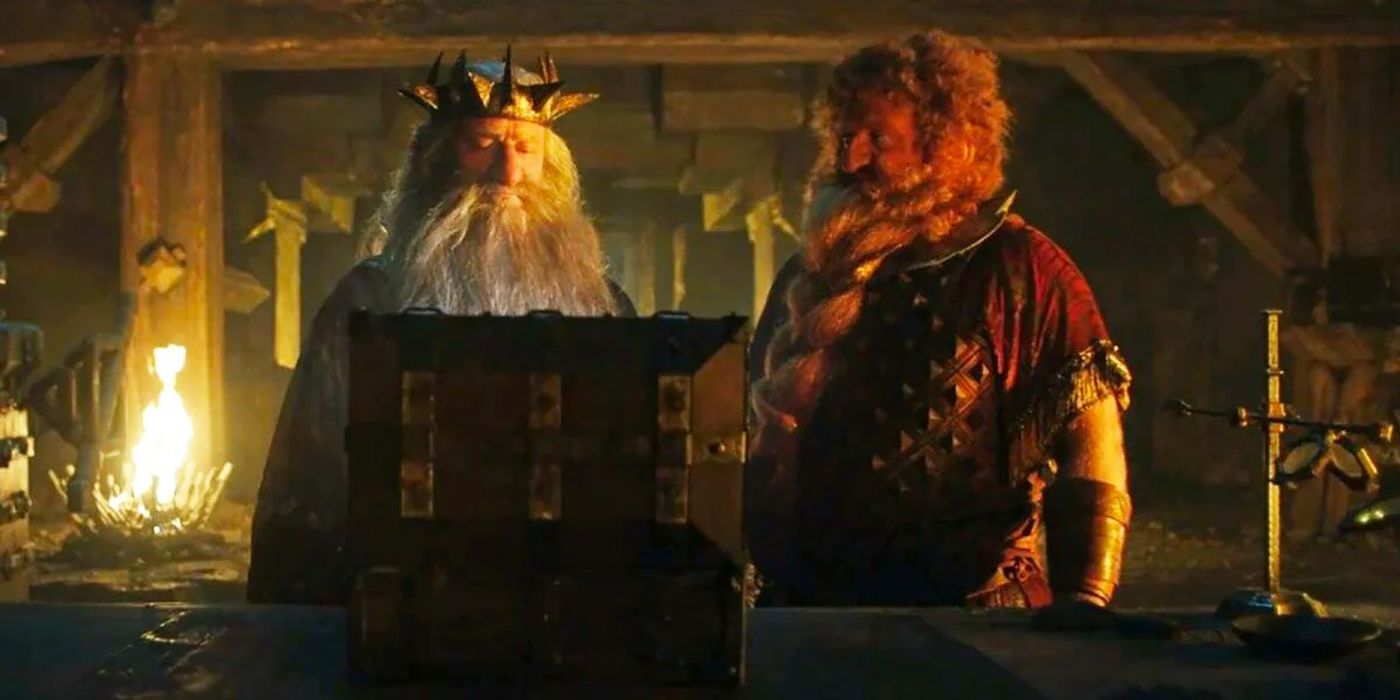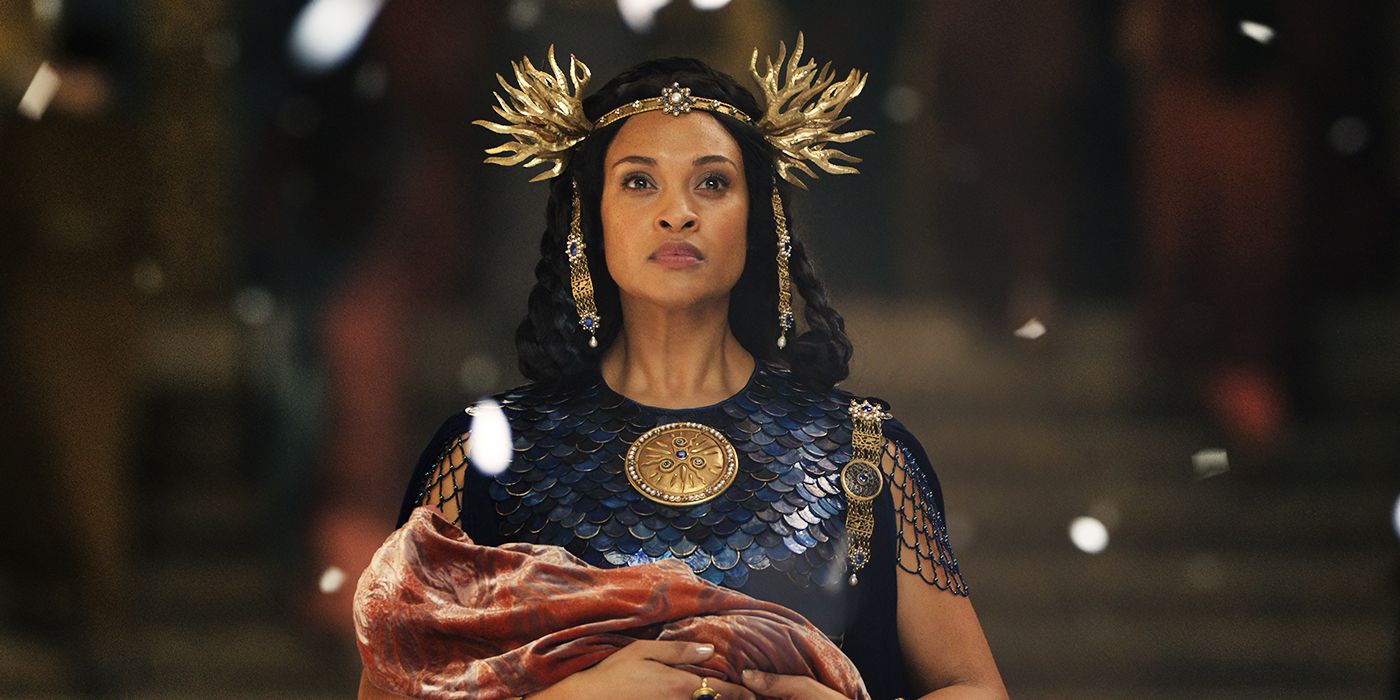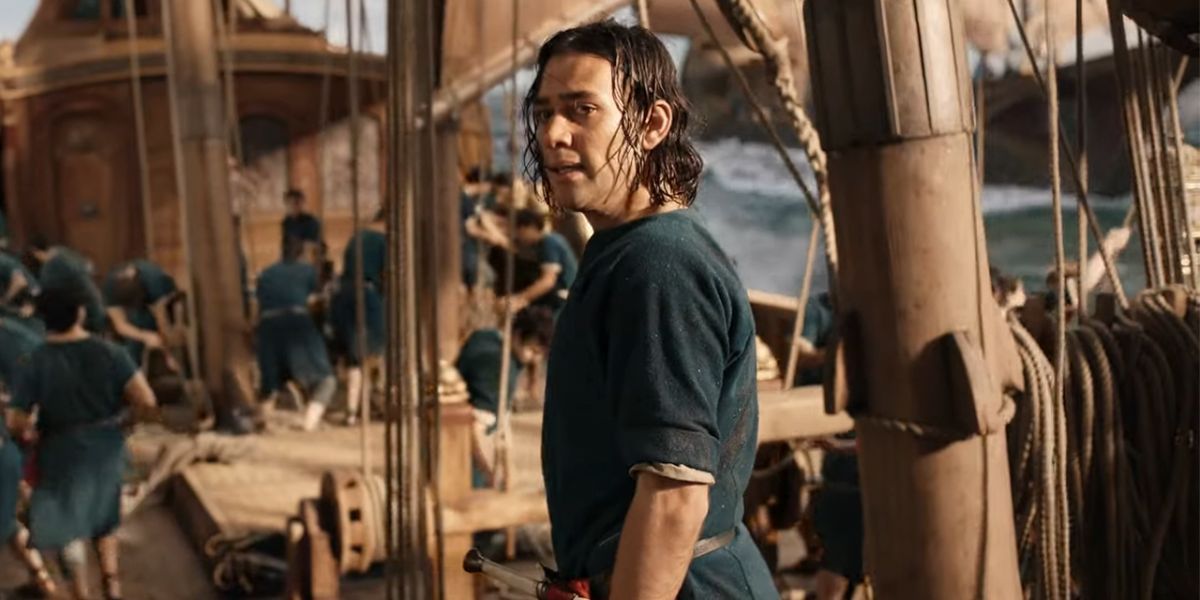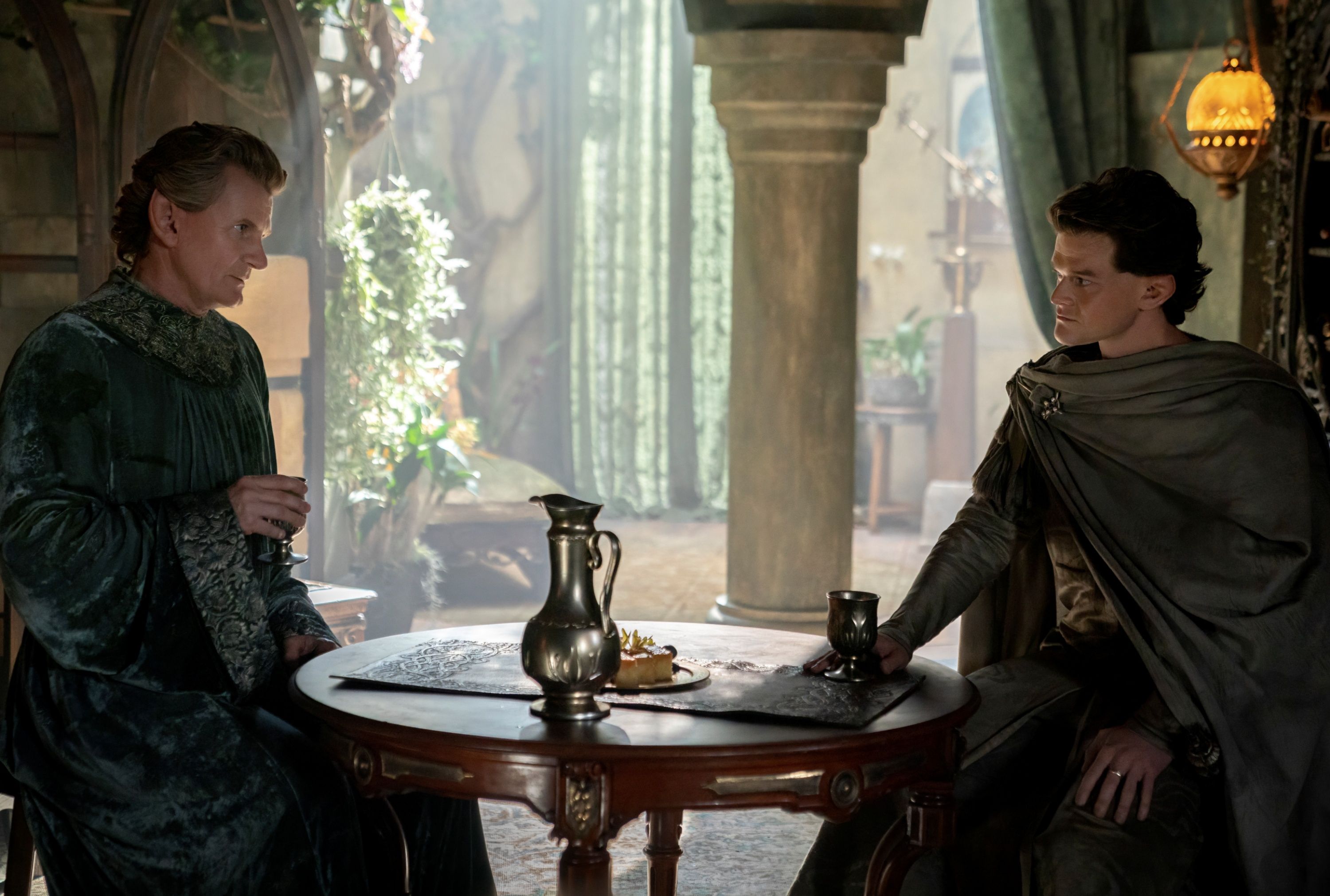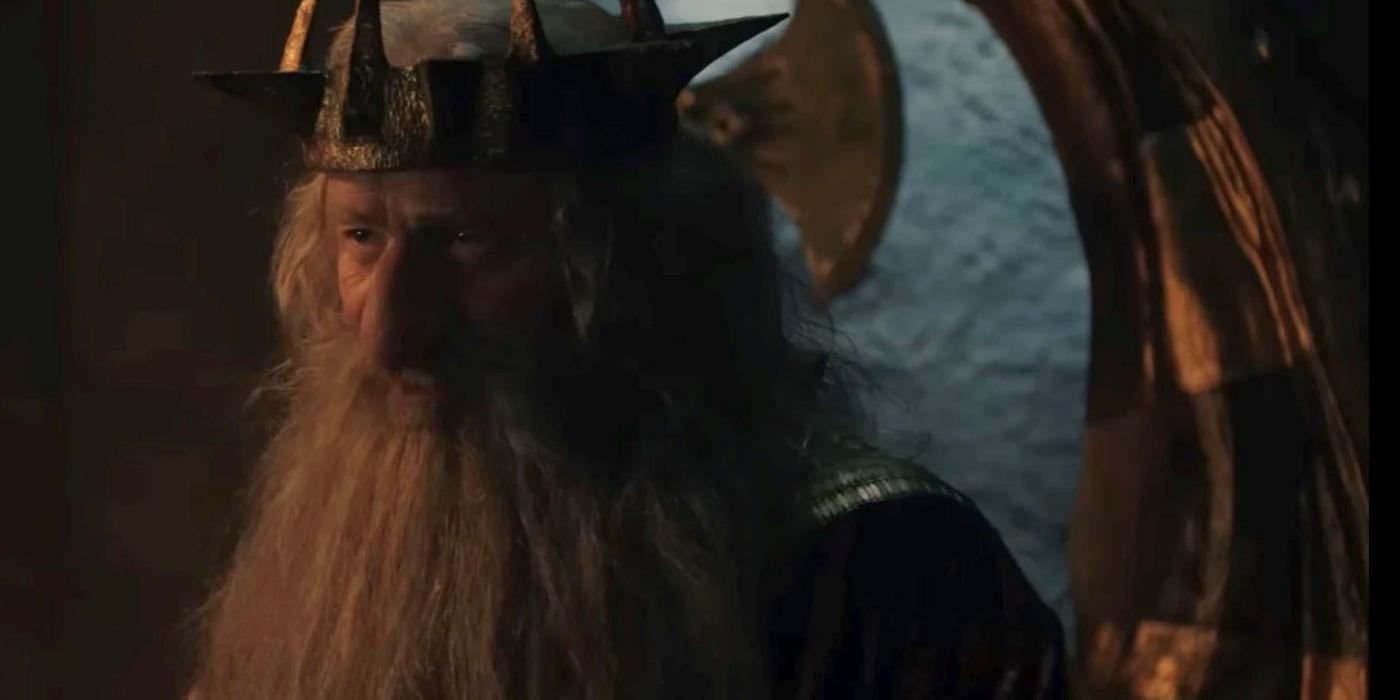Editor's Note: The following contains spoilers for Episode 4 of The Lord of the Rings: The Rings of Power.
It doesn't matter what universe you come from, navigating the relationship with your parents is never an easy thing. In Middle-Earth, especially, fathers and sons are frequently found at odds with one another, and this week's episode of The Rings of Power further explored this Lord of the Rings trope in a drastic and emotional way. Episode 4, "The Great Wave," put parents and their children on opposite sides of their plot lines, forcing a generational clash that is sure to move the general narrative of the Prime Video show in interesting directions.
Conflict between generations is a driving force not only in fantasy and fiction, but in our own world as well. It's by choosing a different path or direction than those who came before that progress and evolution can be achieved; otherwise things are bound to stay pretty much the same. In the Lord of the Rings trilogy (both the novels and Peter Jackson's movies) and J.R.R. Tolkien's Legendarium as a whole, this is also a heavily featured subject.
Right off the bat, back in The Fellowship of the Ring, we meet Frodo Baggins (Elijah Wood) and learn of his loving and adventurous relationship with his uncle (and father figure) Bilbo Baggins (Ian Holm). Later come Arwen (Liv Tyler) and Elrond (Hugo Weaving), Aragorn (Viggo Mortensen) and the whole line of Gondor, and, of course, brothers Boromir (Sean Bean) and Faramir (David Wenham) and their abusive father Denethor (John Noble). Each of those relationships is complex in its own way, and unfold accordingly throughout the saga, with each generation carrying their own crosses and having their own adventures.
So, naturally, newcomer The Rings of Power would need to venture into the murky waters of father-children relations eventually, and did so beautifully. The show's fourth episode brings forth a set of conflicts for its main characters that depend on their decisions to carry on the paths of their fathers, or break off into uncharted territories. As in real life, there are no right answers for them, only what their instincts tell them is the right thing to do. While the tales are epic in nature, the show is doing a superb job of reminding us that they are carried out by real people (or Elves and Dwarves). While the parents lay their expectations and hopes upon their children, those also have the responsibility of discovering their own path, which may sometimes require them to challenge their fathers.
Tar-Míriel and Tar-Palantir
Queen Regent of Númenor, Tar-Míriel (Cynthia Addai-Robinson) has the responsibility of leading the proudest of Human realms into the future, while juggling her attention between power-hungry chancellor Pharazôn (Trystan Gravelle), the challenging presence of Galadriel (Morfydd Clark) and the wishes of her father, king Tar-Palantir (Ken Blackburn), to reconcile with the old ways of the Edain and reestablish relations with the Elves.
The task of Míriel is not directly conflictual toward her father's policies as king, but it still requires her to balance what Palantir wants her to do with the will of the Númenorean people. Proud as they are, following an Elf into battle for a land that is not theirs doesn't sound necessarily like a good idea, but Míriel knows it's the right thing to do. She has been burdened with visions of the island's downfall, and fate even gave her a little help when the petals of the White Tree fell — a metaphor for the tears of the Valar as they see Númenor losing her way.
Her way out (at least for the moment) is relying on her visions and being faithful to her father. Míriel knows the downfall of Númenor begins with Galadriel's arrival on the island, but, at the same time, choosing not to get involved in the war for the Southlands could very well mean a bigger disappointment of the Valar. Although the future looks bleak for Númenor, her path is laid clearly by the gods and her father, for whom she cares deeply.
Isildur and Elendil
Tolkien fans are extremely lucky to see Isildur (Maxim Baldry) and Elendil (Lloyd Owen) in their earlier days in Númenor. This father-son duo will eventually go on to shape the whole of Middle-earth in the latter half of the Second Age, but they still have their rough patches to go through.
Right now, Isildur is the typical young man: head in the clouds, kind of lost and having to defy his father's expectations. He doesn't know what future he wants, he just knows it's not the one Elendil hopes for him. And that's okay, but it does mean confronting the old man sooner or later.
Right now, Elendil is preoccupied with Galadriel's presence in Númenor and what it means for the future of the island-nation, but Isildur's decision to venture into the Southlands and follow Tar-Míriel is sure to have consequences for their relationship in the coming episodes.
Elrond and Eärendil
Another interesting thing to see is young Elrond (Robert Aramayo) struggling with the legacy of his father, Eärendil. Greatness is never an easy thing to carry from the previous generations, as the expectations are often heavier than the legacy itself. Elrond will eventually have his own legacy to pass on to his daughter, Arwen, but, right now, he is the one in self-doubt.
Eärendil is one of the most important Elvish figures of the First Age. He was a Half-Elf, son of Tuor and Idril, one of the Human-Elf couples up to this point in Middle-Earth history. When Morgoth's threat was too big to face in the beginning of the War of Wrath, he was the one who ventured into the west towards Valinor, where he pleaded for the Valar to aid the Elves and Humans in the fight against the Lord fo the Dark. The Star of Eärendil, the first to shine in the morning and in the evening, has its name for it is believed that it's Eärendil himself sailing his ship with one of the Silmarils tied to his brow — a blessing he got from the Valar.
Your father living in the sky after bargaining with the gods themselves is no easy act to follow, but Elrond is doing his best. His dialogue with Celebrimbor (Charles Edwards) reveals that behind the aspiring politician there is a young Elf burdened with insecurities, who would gladly reach out into the sky to have his father tell him what to do. Knowing that this is impossible, he just does what he can, instead.
The counsel of Gil-Galad (Benjamin Walker) and his duty to the Elves is currently in collision course with his diplomatic efforts toward the Dwarves, though, and not even pleading to the Valar could prevent that. We know Elrond will turn out to be just as important as Eärendil by his own merits, and his tasks in the Second Age will certainly play a big part in who he will become.
Durin IV and Durin III
The second episode of The Rings of Power offered us the first glance into the Dwarfish realm of Khazad-Dûm, along with Prince Durin IV (Owain Arthur). He won us over with his fiery attitude and tender heart, and his friendship with Elrond is definitely one of the highlights of the show so far. In "The Great Wave," his dilemma between his loyalty to his friend and his duties to his people is made even more clear.
Dwarves and Elves have never gotten along, which makes his relationship with Elrond all the more special. Something in common, both of them have the large shadows of their fathers looming over them, and it was good to see them talk about it for a while, after Durin's father, King Durin III (Peter Mullan), closes the veins the Dwarves were mining for safety reasons.
Prince Durin IV is young, feisty and eager to prove his valor in whichever arena he is, but needs to learn how to temper his wits. King Durin III offers an unexpected contrast to that, basing his answer in warmth and tenderness. But there is more to his approach, just as he cautions the young prince about the Elrond and Gil-Galad. The Dwarves are the ones currently holding the hammer in their relationship with the Elves and, as we know, there can be no friendship between hammer and rock. So prince Durin might have to weigh his friendship with Elrond against his duty as heir to Khazad-Dûm soon enough.

